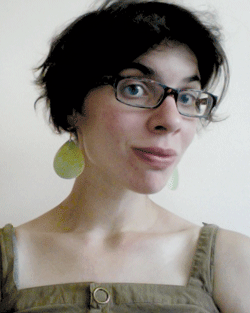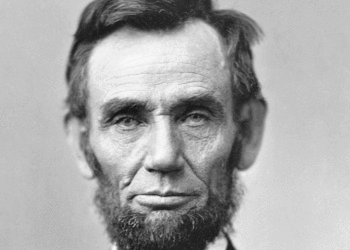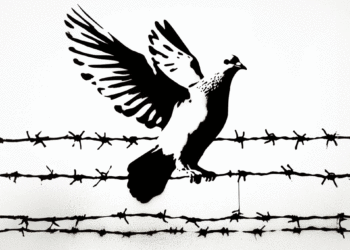Parents learn to love a baby name that is synonymous with an Israeli-designed submachine gun
By ADINA GIANNELLI
When I learned I was pregnant with my first child, I knew I wanted to give her a Hebrew name. Although my partner is not Jewish, out of love, respect and an abiding wish to honor what mattered to me, he agreed.
After months of discussion, I made a list of names from which my partner chose his favorite: Talya, meaning “dew of G-d.” It suited our sweet and tiny girl remarkably well.
Interfaith Parenting
I am currently pregnant with our second child, a son, and this time the naming process hasn’t been quite as seamless. Again, I want to give the baby a Hebrew name. Again, my partner agrees. This time, though, he has his mind set on one name in particular — a name he apparently loves, and one I cringe at. As a result of the name game, we’re currently embroiled in a conflict of epic proportions. I like to call it “the Battle for Uzi.”
I spent several weeks of my second trimester in Russia, communicating with my partner primarily through daily e-mails and tearful Skype sessions. One morning, I received an e-mail reading, “How do you feel about Uzi Cecil?”
“Uzi Cecil?” I thought, “Is that the name of a band I’ve never heard of? An obscure literary reference? A euphemism for something otherwise unprintable?”
After scanning my memory for various possibilities, I realized that Uzi Cecil is what he wants to name our son.
I started to cry.
 Adina Giannelli: I like unusual. But Uzi took things too far. (Photo: Courtesy of InterfaithFamily.com)
Adina Giannelli: I like unusual. But Uzi took things too far. (Photo: Courtesy of InterfaithFamily.com)
Cecil, I realized, was in honor of his maternal grandfather, a man I’d never met — long deceased and much loved. While I had no personal attachment to the name or the person, I liked the idea of honoring a family member. Cecil, I could live with.
But Uzi?
I quickly dashed off a counter e-mail, suggesting a range of strong and beautiful names: Ariel, Samuel, Eyal, Asher, Isaac, Ezra, Yaron.
My partner vetoed each one.
“We’ll call him Uzi,” he said.
While I loved traditional Hebrew names like Benjamin (“son of the right hand”), Elijah (“the Lord is my G-d”) and Isaac (“he will laugh”), the über-popularity of these names diluted their appeal for me. Left to my own devices, I would have named this baby Raphael (“G-d has healed”), but my partner held strong.
“His name will be Uzi,” he said.
“It’s a great name,” I agreed, “if you want to name your child after a blowback submachine gun. Why not ‘Howitzer’ or ‘Carbine’? Or, we could change the weaponry up a little and call him something like ‘Machete’ or ‘Blade’.”
“We wouldn’t be naming him after the gun,” he said. “It’s just a coincidence. Uzi is a beautiful name. And it’s Hebrew! You should be happy!”
“If it’s Uzi or a non-Hebrew name,” I replied, “I’ll take a non-Hebrew name. I’m not naming my son after destruction!”
“Come on,” he said, “that isn’t fair. It’s just a unique Jewish name. Sort of like Adina!”
Indeed, as someone named Adina — a traditional Hebrew name, very uncommon in the United States — I understood firsthand what it meant to have a “unique Jewish name.” And, admittedly, I liked it.
Still. In the popular imagination, there’s a great gulf between Adina and Uzi, due to Israeli gun designer Uzi (Uziel) Gal, for whom the infamous submachine gun is named. According to Wikipedia, Gal did not want the weapon he designed to bear his name, but the Israel Defense Forces ignored his pleas, seeking to recognize the man by naming the gun in his honor. Today, the name is synonymous with the gun.
Also, it’s worth stating: we live in a corner of western Massachusetts known as “the Happy Valley” — a land of academics, artists and free spirits, a place where parents bestow unusual names upon their children every day. I like unusual. But Uzi took things too far.
Or did it?
I tried to come up with alternatives to Uzi.
“This will be easy,” I thought. “There are so many great Hebrew names. I just need to find one I love, and then do a little convincing.”
So I scoured books, practically memorizing the contents of Anita Diamant’s What to Name Your Jewish Baby. I pored over Laura Wattenberg’s The Baby Name Wizard and its companion Web site, babynamewizard.com. I searched for alternatives, but nothing seemed to click.
“How’s Uzi doing today?” my partner asked.
“I am not responding to that question,” I said, “and you know why.”
“You’re not really going to name him Uzi, right, Adi?” my sister asked almost daily, her voice always thick with concern.
“Of course not,” I insisted.
Still, I kvetched (complained) about Uzi, loudly and often.
“Can you believe he wants to name our baby Uzi? That’s right, Uzi! Like the gun! Like ‘oozy’! This man must be out of his mind.”
Yet, I thought about the name, and it began to grow on me. Uzi is Hebrew, it means “strength,” it’s unusual and it delights my partner. Still, for many months, reason and judgment and pride kept me from acquiescing.
At some point, though, the tide turned, and the unimaginable happened. I started to think of him — the baby — as Uzi.
In a way, it was fitting.
I never thought I’d agree to call him Uzi. But then, I never thought I’d have this baby, either. While this pregnancy was unplanned and highly unexpected, it is also deeply wanted. To carry life is a responsibility, but it’s also a tremendous bracha (blessing). I am looking forward to the joy of meeting this baby, to the challenges of raising him and, one day, to explaining how we arrived at his name.
Being a parent is about making choices and accepting change, opening one’s mind to the unexpected and allowing your heart to embrace the unknown. It’s about welcoming new life, new love and new ideas — some of which you never thought possible. Including Uzi.
Especially Uzi.
***
Adina Giannelli trained as a lawyer, and is a freelance writer and graduate student in public health. She is currently working on her master’s thesis, her son’s gestation and a manuscript about her daughter’s life and death. You can find her online at: todayfortalya.blogspot.com.
This article was originally published on InterfaithFamily.com.
(American Jewish World, 9.16.11)









 Adina Giannelli: I like unusual. But Uzi took things too far. (Photo: Courtesy of InterfaithFamily.com)
Adina Giannelli: I like unusual. But Uzi took things too far. (Photo: Courtesy of InterfaithFamily.com)









